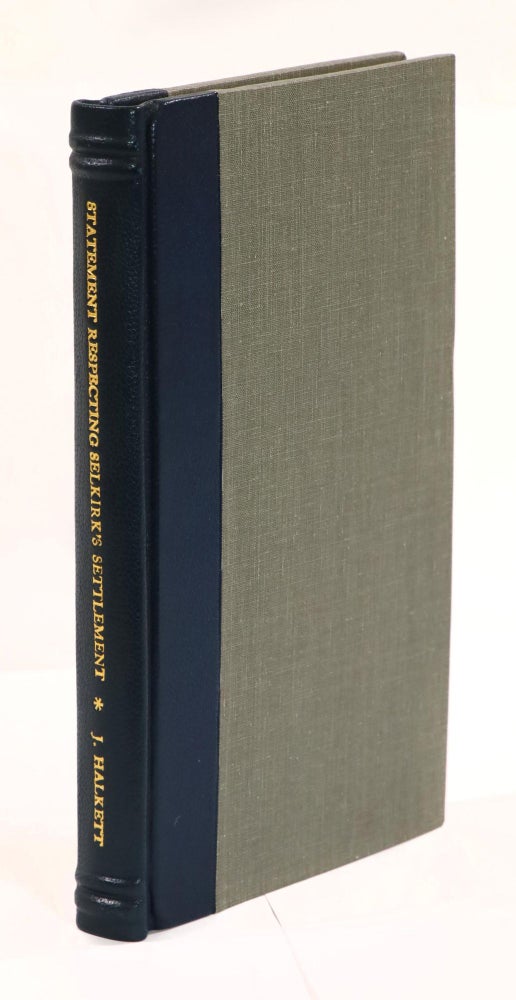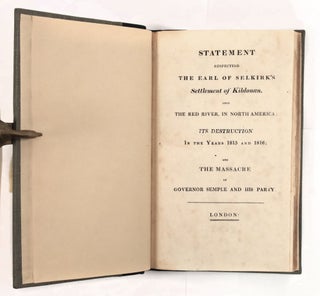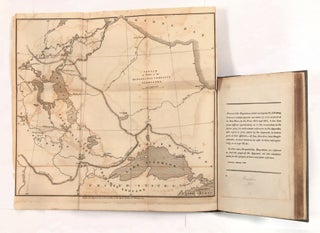Statement Respecting The Earl of Selkirk's Settlement of Kildonan, Upon the Red River, in North America; Its Destruction in 1815 and 1816; and the Massacre of Governor Semple and His Party
London: [J. Brettell], [1817].
First Edition. True first edition, issued prior to the John Murray trade edition and distributed only to Selkirk’s and Halkett’s close associates and certain highly-placed officials in the British Foreign Office. 8vo, pp. 125, lxxxix, with folding map by A. Arrowsmith titled "Sketch of a Part of the Hudson's Bay Company Territory," in a modern quarter-leather binding. Map has some offsetting and an old repair on the verso; binding sound, text very clean. The Red River Settlement was an agricultural colony located in present-day Manitoba, North Dakota, and Minnesota established in 1811 by Thomas Douglas, Fifth Earl of Selkirk, on about 120,000 square miles of land granted to him by the Hudson's Bay Company. Selkirk had become interested in settling the area after reading Alexander Mackenzie's 1801 book on his travels in the region. Poverty was on the rise in Scotland, and Selkirk believed he could give settlers a chance at a better life in the new colony he called "Assiniboia." His chief opponents in this plan were the partisans of the Northwest Company, who had long traded without interference in the territories now claimed by Selkirk and the Hudson's Bay Company. Although the colony was not very successful agriculturally, the lure of free land added new settlers every year, and scarce resources and disputes over land rights led to conflict with trappers and traders from the North West Company. This work, written by Lord Selkirk’s brother-in-law, defends Selkirk’s actions in response to aggressions instigated by the North West Company that ultimately culminated in the 1816 “Massacre at Seven Oaks,” and the death of the colony’s governor, Robert Semple. The Appendix contains legal documents in support of Selkirk’s case. Streeter (3672) opines that "The tone of the Statement is arrogant, and was certainly poor 'public relations' as far as the Canadian public was concerned." TPL 1092; Sabin 20703.
Item #22895
Price: $750.00





